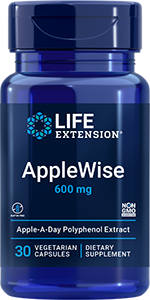
Newsletter
Newsletter
Garlic Compound 100 Times More Effective Than Antibiotics Fighting Food Borne Illness
Garlic compound 100 times more effective than antibiotics at fighting food borne illness
Friday, May 4, 2012. An article published online on May 1, 2012 in the Journal of Antimicrobial Chemotherapy reveals a potent effect for garlic against the bacteria Campylobacter jejuni, a leading cause of intestinal illness caused by eating undercooked poultry or foods that have been contaminated during poultry preparation. "Campylobacter is simply the most common bacterial cause of food-borne illness in the United States and probably the world," explained coauthor Michael Konkel of Washington State University's College of Veterinary Medicine. The researchers compared the effects of diallyl sulfide, a compound that occurs in garlic, and the antibiotics ciprofloxacin and erythromycin on biofilms formed by Campylobacter jejuni. Biofilms are colonies of bacteria protected by a film that renders them a thousand times more resistant to antibiotics than free cells. Cell death following the administration of diallyl sulfide occurred at a concentration of resveratrol that was 100-fold less than that which was effective for either antibiotic, and often took less time to work. The team found that diallyl sulfide combined with a sulfur-containing enzyme, which altered the cells' function and metabolism. "This work is very exciting to me because it shows that this compound has the potential to reduce disease-causing bacteria in the environment and in our food supply," stated lead author and postdoctoral researcher Xiaonan Lu, PhD. "This is the first step in developing or thinking about new intervention strategies," added Dr Konkel. "Diallyl sulfide may be useful in reducing the levels of the Campylobacter in the environment and to clean industrial food processing equipment, as the bacterium is found in a biofilm in both settings." "Diallyl sulfide could make many foods safer to eat", noted Barbara Rasco, another co-author of the report. "It can be used to clean food preparation surfaces and as a preservative in packaged foods like potato and pasta salads, coleslaw and deli meats. This would not only extend shelf life but it would also reduce the growth of potentially bad bacteria." | ||||||||||||||||||||||||||||||||||||||||
 | ||||||||||||||||||||||||||||||||||||||||
| ||||||||||||||||||||||||||||||||||||||||
 | ||||||||||||||||||||||||||||||||||||||||
| ||||||||||||||||||||||||||||||||||||||||
| ||||||||||||||||||||||||||||||||||||||||
The latest news on aging, nutrition, and vitamins
Lab
Testing
How Life Extension lab testing works








